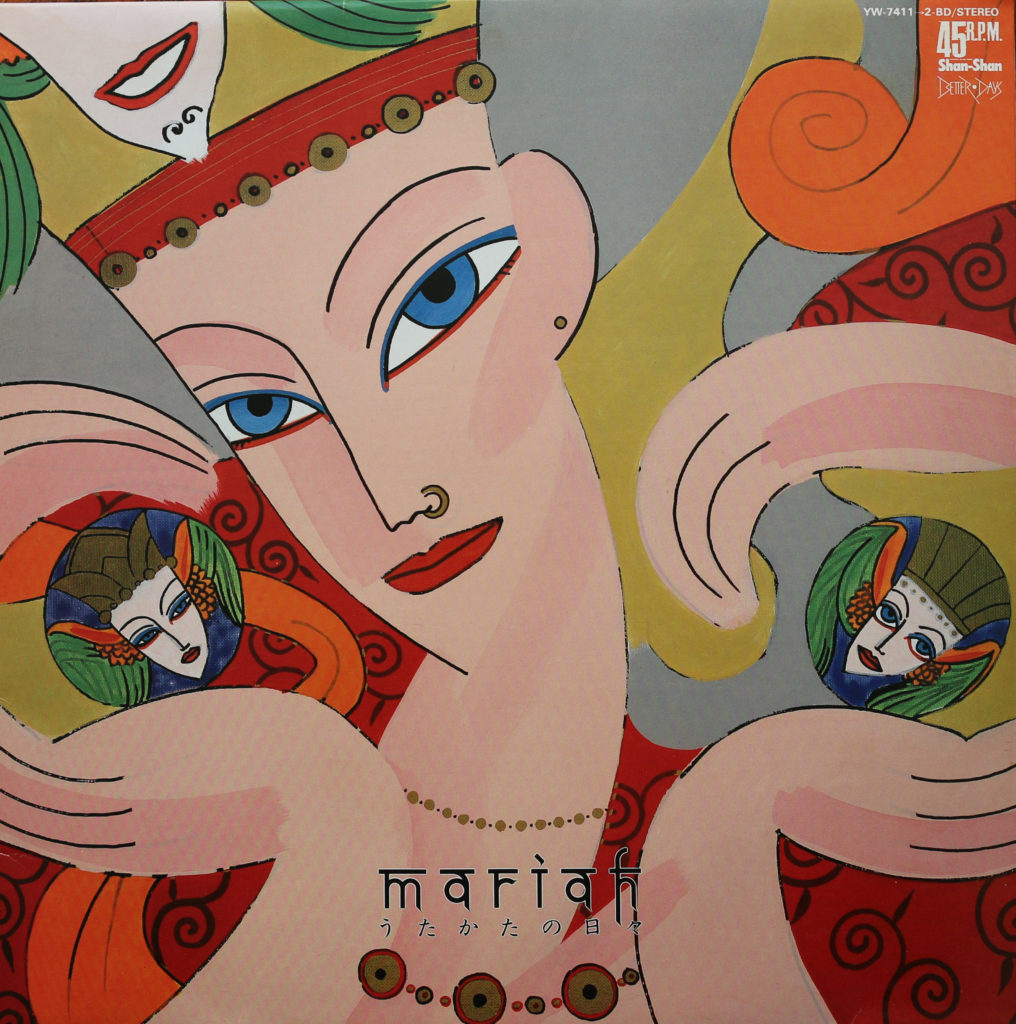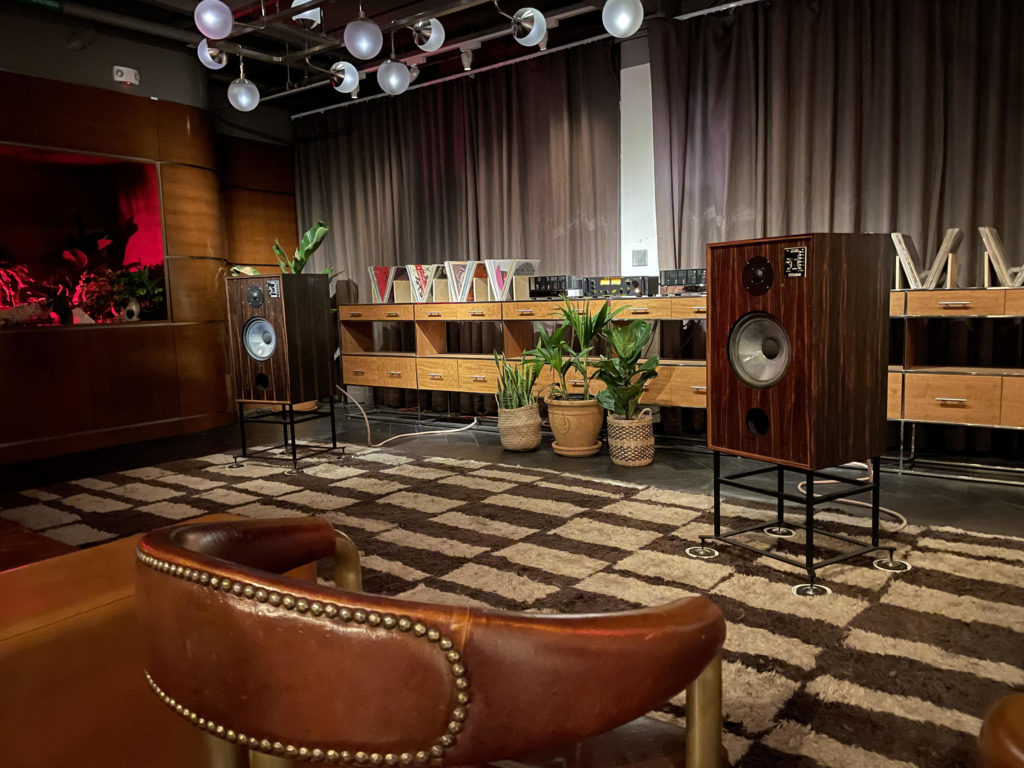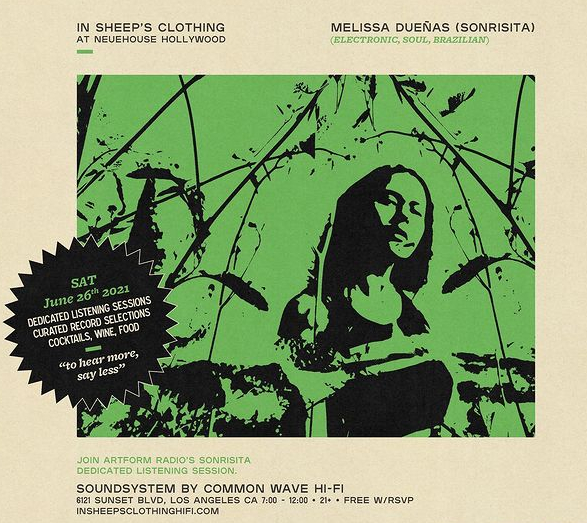
Mariah – Sokokara
Mariah – Hana Ga Saitara
Mariah – Shinzo No Tobira
Mariah – Shonen
As the year comes to a close, we often get reflective about the past 12 months. 2021 wasn’t at all the year I hoped it would be, but if there was one unqualified bright spot of the year, it was the series of dedicated deep listening sessions that were put on by the folks at In Sheep’s Clothing Hi-Fi during their residency at Hollywood’s NeueHouse. One of the last things I did pre-pandemic was attend a deep listening session of Alice Coltrane’s Ptah, The El Daoud at In Sheep’s Clothing’s spot in the Arts District in DTLA, and so when I learned they were doing sessions again this past Summer, I was beyond excited. Having apparently lost their prior location, they set up shop at NeueHouse, taking over the rooftop along with a space set up inside with one of the sweetest Hi-Fi sets I’ve ever had the privilege to hear music on.

Of the many sessions I was able to attend, BY FAR my favorite was the very first one I went to, featuring selections from Melissa Dueñas aka Sonrisita.

Sonrisita first came up on my radar when Oliver Wang of Soul-Sides.Com had effusive praise for her East Side Story Project, documenting the compilation series with the same name, as well as the Chicano Oldies culture connected to the songs here in LA. She’s a DJ of the highest order, whether in clubs or bars, or on the shows she produces, on my current home, Artform Radio as well as Lowrider Sundays on Dublab, in addition to being a sterling journalist/archivist.
While all of her selections were spot on and curated in a perfect flow from the start (Alice Coltrane) to the close of the evening (Lonnie Liston Smith) and all points in-between (Edu Lobo, Arthur Verocai, Clube Da Esquina & Nuova Napoli), this album from the Japanese group Mariah was the one that was the most illuminating. I had heard about this album previously, but, for some completely inexplicable reason, I hadn’t actually heard anything from it. It’s an album that for the most part dropped off the radar after release, but, as is so often the case, quality music finds its way to people’s ears eventually, and in time “Shinzo No Tobira” became a bit of a underground club staple, eventually leading to the whole album being reissued in 2015.
The sound of this album fits, to a degree, in sounds that emerged out of Japan and elsewhere in the early 1980s. There are aspects of synth-pop, industrial, post-punk & no wave jazz swirling around in the mix that bandleader Yasuaki Shimizu brought together for this session, the final album by the group. It’s the addition of vocalist Julie Fowell, along with Armenian lyrics culled from poetry by Seta Evanian, that create music that almost defies classification. When I was first listening to the album (the only one that Sonrisita played in it’s entirety, instead of just a single album side) in that space, I couldn’t actually place the language, which added to the mystery of the sounds I was experiencing there for the first time. Armenian music and lyrics just aren’t something you hear very often in the States, and certainly not what you’d expect from a Japanese group’s record from the 1980s, but due to Evanian’s relationship with Mariah’s bassist Morio Watanabe, they found their way here and created the record’s unique sound.
Shimizu, in an interview with Red Bull Music Academy, described the sound of this album as “the feeling of an eternal breeze brushing your cheek,” and also as “the sound of a line drawn by a petal in the wind alighting on a river, and going with the flow.” As much as I love the poetics of that description, personally, I can only describe it as what a soundtrack for a David Lynch directed anime/live-action mash-up of Akira, Blade Runner & the Color Of Pomegranates would sound like…it’s not a sound that really should exist, but exist it does.
After that session at NeueHouse, I did all I could to track down a minty copy of this album, and in the ensuing months since initially hearing it, I’ve tried my best to recreate that same deep listening experience that I had that first time. Even after multiple listens, the album still amazes and confounds my ears. Mariah’s Utakata No Hibi isn’t just one of my favorite musical discoveries of the past year, but of all-time, and a reminder that there’s still so much music yet to discover, hear and adore out there in the world.
